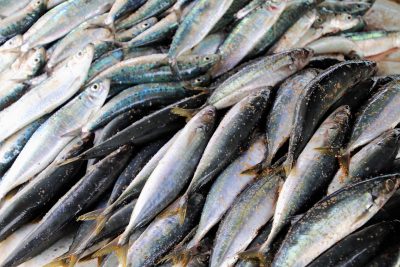Climate change is creating adverse impacts on the health and biodiversity of our global ecosystems. Climate-driven changes in ocean environmental conditions — ocean warming, deoxygenation and acidification — are projected to affect the physiological functions of marine organisms, their geographic distributions, biological life cycles and total biomass.
This is according to a new study recently published in PLOS ONE, which was based on marine ecosystem modelling intercomparisons examining the spatial and temporal patterns of trophic amplification in the global ocean.

Photo: pasja1000 / Pixabay
Globally, total consumer biomass is projected to decrease more than NPP by 16.7 ± 9.5 per cent, with consumer biomass decreasing more than NPP in 40% of the world’s oceans. Additionally, in another 36 per cent of the world’s oceans, consumer biomass is expected to decrease even as projected NPP increases.
Previous studies have found that climate change will hit either the highest or lowest level of marine food webs hardest, creating ripple effects felt throughout the entire ecosystem. Changes in biomass at low trophic levels (prey species at the bottom of the food web) may be exacerbated through a bottom-up propagation process called trophic amplification, with the magnitude of negative climate impact increasing as it travels further and further up the marine food web.
“In our analysis, we took a detailed look into trophic amplification across different levels within the food web, we saw a greater average decrease in the biomass of larger, higher tropic levels,” said Vianney Guibourd de Luzinais, first author of the study, which was undertaken at the UMR Dynamics and Sustainability of Ecosystems: From Source to Sea (DECOD), Institut Agro, Ifremer. He is now a Ph.D. student at both UBC’s Institute for the Oceans and Fisheries and DECOD, Institut Agro. “Going forward, we may see large climate-induced declines in fish species (often high trophic level species), regardless of how other marine species are doing. This may severely impact the livelihoods, cultures and food security of ocean-dependent peoples, while also impacting other economies through a change in fisheries production and output.”
As a consequence of trophic amplification, climate change associated, high tropic level predator species will be impacted the most. “This scenario may have very big repercussions because predator species play a crucial role in the food web and ecosystem stability, and are the main target of most fisheries globally,” said Dr. William Cheung, professor at UBC’s Institute for the Oceans and Fisheries and co-author on the paper. “Their health and population numbers may determine food security for millions of people around the world.”
Trophic amplification: A model intercomparison of climate driven changes in marine food webs was published in PLOS One.
Tags: biology, biomass, climate change, CORU, ecosystems, faculty, food security, food webs, Gabriel Reygondeau, IOF Research Associates, IOF students, marine ecosystems, ocean economy, plankton, Research, species distribution, trophic amplification, William Cheung, zooplankton